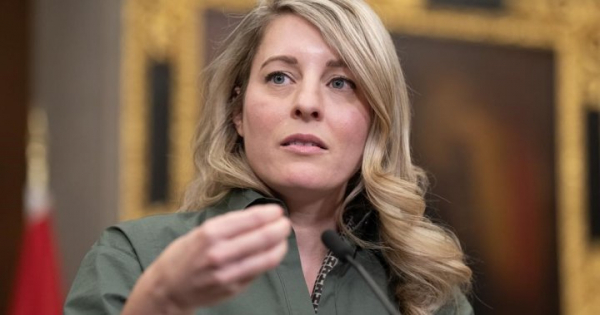Canada Maintains Ambiguity on ICJ Ruling in Gaza Genocide Case
Foreign Minister Melanie Joly announced that Canada will closely monitor the ongoing case against Israel at the International Court of Justice (ICJ) following an interim ruling. The ruling, which did not order a ceasefire, instructs Israel to prevent death, destruction, and acts of genocide in Gaza. It also calls on Hamas to release hostages from its Oct. 7 attack on Israel. Joly emphasized Canada's support for the ICJ's role in dispute resolution but clarified that this support doesn't imply acceptance of the case's premise. The federal government's stance has been criticized as 'incomprehensible,' maintaining a neutral position on South Africa's accusation of Israeli genocide against Palestinians. The ICJ's final ruling, expected in years, comes after judges rejected Israel's request to dismiss the case, contributing to increased international pressure on Israel to end its military offensive in Gaza.
Hamas's vow to continue hostilities has prompted an unwavering stance from Israel, asserting the necessity of their military campaign. While Mona Abuamara, chief representative of the Palestinian General Delegation in Canada, expressed a desire for a stronger stance from the ICJ, she acknowledged the ruling as the second-best option. Pro-Palestinian groups like Canadians for Justice and Peace in the Middle East, as well as human rights organizations, Amnesty International and Oxfam, have urged Canada to take a clearer position, with some calling for the suspension of arms transfers to Israel. Liberal MPs are divided, with Salma Zahid emphasizing compliance with ICJ orders and addressing the humanitarian situation, while Anthony Housefather deems South Africa's case baseless. Conservative leader Pierre Poilievre criticized the language used by Joly and Trudeau as 'incomprehensible,' echoing the rejection of South Africa's claims by Canada's allies, including the United States.
The information provided regarding the casualties and the scale of Israel's response in Gaza is disputed. The Hamas-run health ministry claims more than 26,000 deaths, while Israel attributes approximately 1,200 deaths to Hamas' attacks. South Africa condemns Hamas' attacks but criticizes the scale of Israel's response in Gaza. It's important to note that casualty figures and the assessment of the situation may vary among different sources and perspectives.
In conclusion, the ongoing complexities surrounding the Israel-Gaza conflict continue to evoke diverse reactions and perspectives. The recent ICJ interim ruling, ordering measures to limit casualties and preserve evidence, adds a legal dimension to the contentious situation. Canada's ambiguous stance and internal divisions among its political leaders reflect the challenges in formulating a unified response. As the international community grapples with calls for clear positions, the deep-rooted tensions in the region persist, shaping the narratives and responses from various stakeholders. The evolving dynamics underscore the need for nuanced diplomacy and a comprehensive approach to address the multifaceted issues surrounding the Israel-Gaza conflict.






